Popular Types of Cowrie Shells
Shells have an incredible history. Dating back from over a hundred thousand years ago, the most beautiful shells were used as part of ceremonial outfits or as ornaments. However, cowrie shells then were more used as a form of currency in some parts of Asia and Africa.
Cowrie shells are primarily from the warm seas. But because these shells are brilliantly colored and have a high polish surface, they became popular with collectors. Over time, aside from being collectibles, their uses also evolved into pieces of jewelry and charms.
In their evolution into jewelry, charms, and more adornments, cowrie shells became earrings, rings, bracelets, anklets, key chains, home decors, and so on. But with over two hundred different types of cowrie shells, the most popular ones are the ones being used the most. Are you now curious about what is the most popular of the bunch? Then, here are the following of the popular types:
Popular Types of Cowrie Shells You Need To Know
Tiger Cowrie Shell
Tiger cowries are commonly found in the Indo-Pacific region. A rare variety, an all-black shell, is sometimes discovered. They are heavy with a flat or concave base and have a length of 8-9 cm to 15 cm.
This one of the cowrie shell types is oval to pear-shaped, with a variation of color from white to nearly black. Tiger cowrie shells also have spots of dark brown to black that are round and dense in appearance. The underside and teeth are white.
Also, the shell's mantle resembles a tiger's stripes, described as a fingerprint pattern, which can be golden yellow with dark spots and bands. Tiger cowrie shells are popular with collectors and used in ancient and modern times as decorative items.
Map Cowries
Map cowries, Leporicypraea Mappa, are found and an important species in the Indo-West Pacific. This type of cowrie shells was named deriving on its distinct color pattern, longitudinal lines, and the easily perceivable and sinuous mantle groves that resemble the ancient maps before.
Map cowrie shells are usually collected for food and shell trading. However, as time evolved, it also became a part of the jewelry-making industry.
Arabian Cowrie
Scientifically known as Mauritia arabica, this is one type of cowrie shells that can be collected near the reefs of the southern Asian shores. Arabian cowries have a 5-8 cm length and are generally bluish in color with pattern variation of a brown color.
These cowries are more active at night. After collecting these for food, Arabian cowrie shells are used for shell craft and shell trade.
Ring Top Cowries
Ring Top cowries are usually located in the Indo-Pacific region. This type of cowrie shells is mostly off-white to polish yellow with a size variation of 0.9 cm to 5 cm. They have unique markings of two stripes, yellow or orange, that almost touch each end. Thus, creating an impression of a ring on its top.
Islanders have used ring top cowries for thousands of years as money and countless types of decorations and rituals.
European Cowrie
Also known as spotted cowrie, scientifically Trivia monacha, European cowries are named, meaning common and solitary respectively. This species takes place from the Mediterranean Sea to the Shetland archipelago.
This type of cowrie shells is glossy, convolute, and lemon-shaped, with 20-30 transverse ridges. The shell's dorsal color is pinkish or reddish-brown with three characteristic darker spots in mature individuals.
Mole Cowrie
Also known as chocolate banded cowrie, it is 5 cm to 7 cm in length. Mole cowries have a smooth and shiny surface with a primarily brown or yellowish-brown color, with three or four light transversal bands in yellow or light brown color. This one kind of the cowrie shell type can be discovered in the Indo-West Pacific region.
In addition, mole cowrie shells are used as decorative elements and as part of your jewelry pieces today.
Money Cowrie
With the scientific name of Monetaria moneta, money cowries were historically and widely used as shell money in countries within the Pacific and the Indian Ocean before coinage became the currency for everyday usage. They were still used in parts of Africa where 100 shells are equal to an English penny.
For its description, this type of cowrie shells is triangular in shape with a bumpy back of thick margins. The color of the shell's surface ranges from porcelain white to a deep yellow. The shells nowadays are used in other decorative items like baskets and wall hangings and especially in jewelry making.
Serpent's Head Cowrie
Also called snakehead cowrie, this species can be found in the Indian Ocean, Red Sea, topical Indo-West Pacific, Philippines, and Australia. They live on rocky shores from the intertidal zone, rock reefs, rocky beaches, and corals.
This one of the cowrie shell types has a reddish-brown color, with several whitish dots on the top, which sometimes shows a clear longitudinal line. Also, the underside's color is light beige. Serpent's Head cowrie shells have been used in local handicrafts in the regions mentioned above.
Golden Cowrie
Golden Cowries have a vivid color orange shell and can reach up to 4 inches in length. This type of cowrie shells is egg-shaped with a narrow opening and a flat base. They are rare and, when found, are prized by collectors.
Through the South Pacific area, golden cowrie shells have been used as religious symbols and their currency. For example, on Fiji island, they were part of the necklace worn by someone with a chieftain rank as a symbol of their status.
Conclusion
Today, only some parts of Africa use cowrie shells as a form of money, but they are mainly used as decorative items and jewelry. But the only thing we should do is to take care of all the shells in the ocean. It must start within ourselves, since we are the stewards of these gifts from above.
Wear our ATOLEA Seashell-inspired jewelry and show off everyone how much you appreciate the beauty of the shells. Our elegant Ocean-inspired jewelry will complete your Summer vibe outfit without compromising marine life.
So choose from our uniquely designed Sea-inspired collections now and carry the spirit of the Ocean all year long!


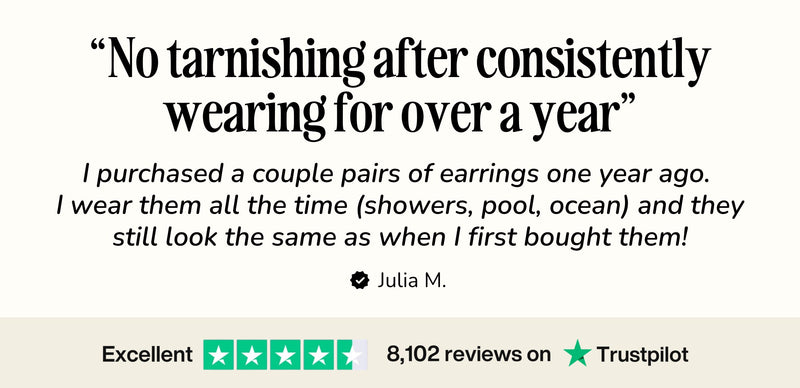


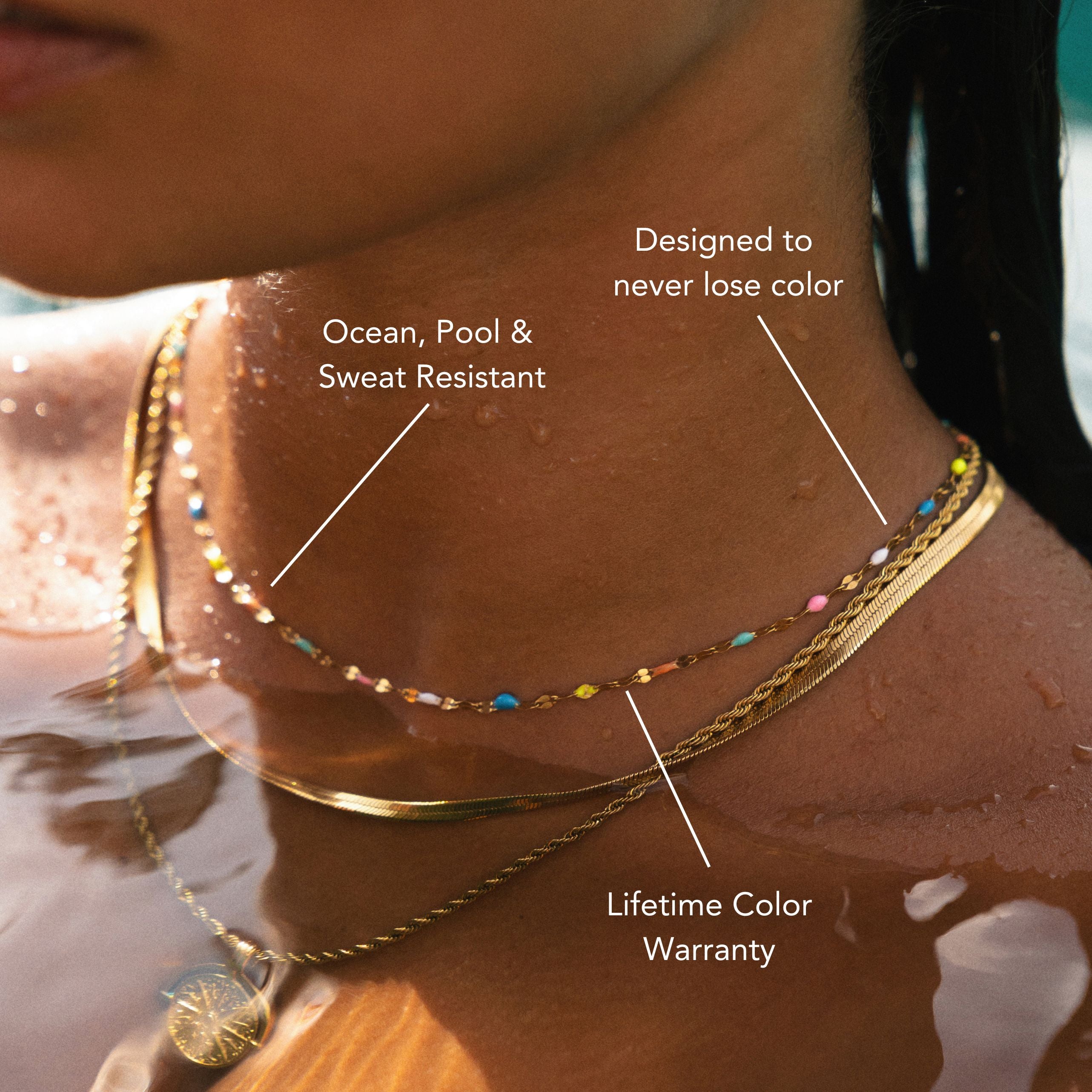

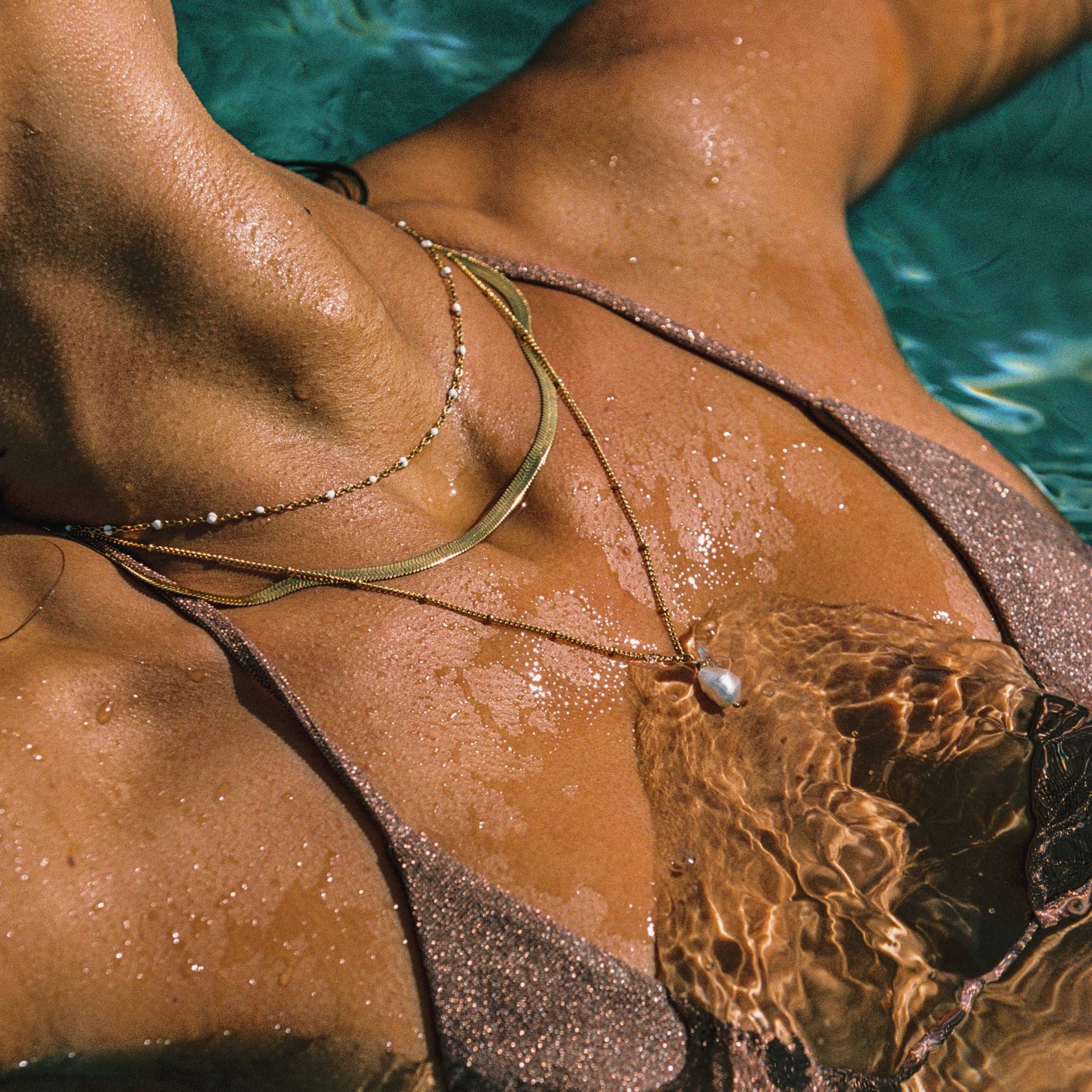
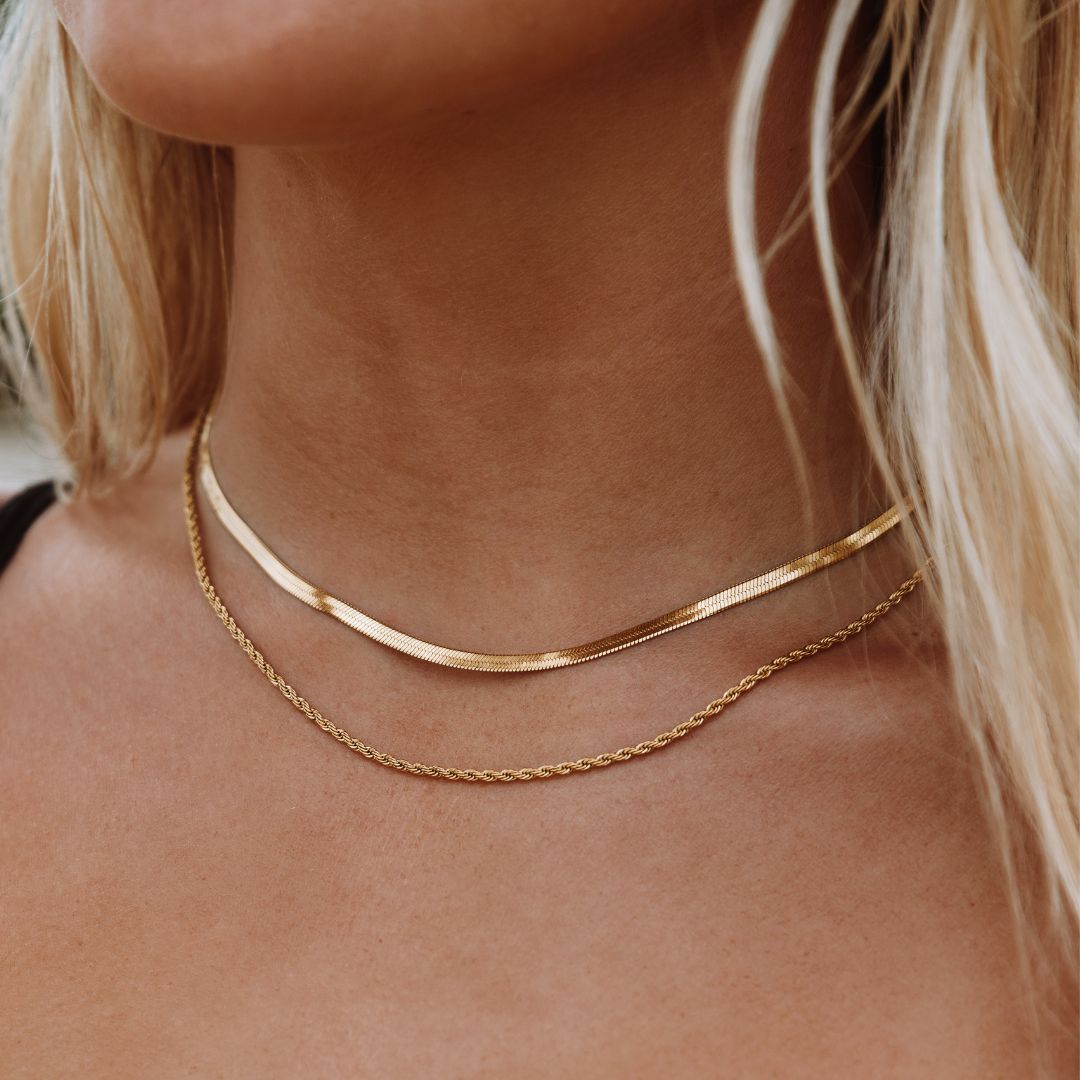



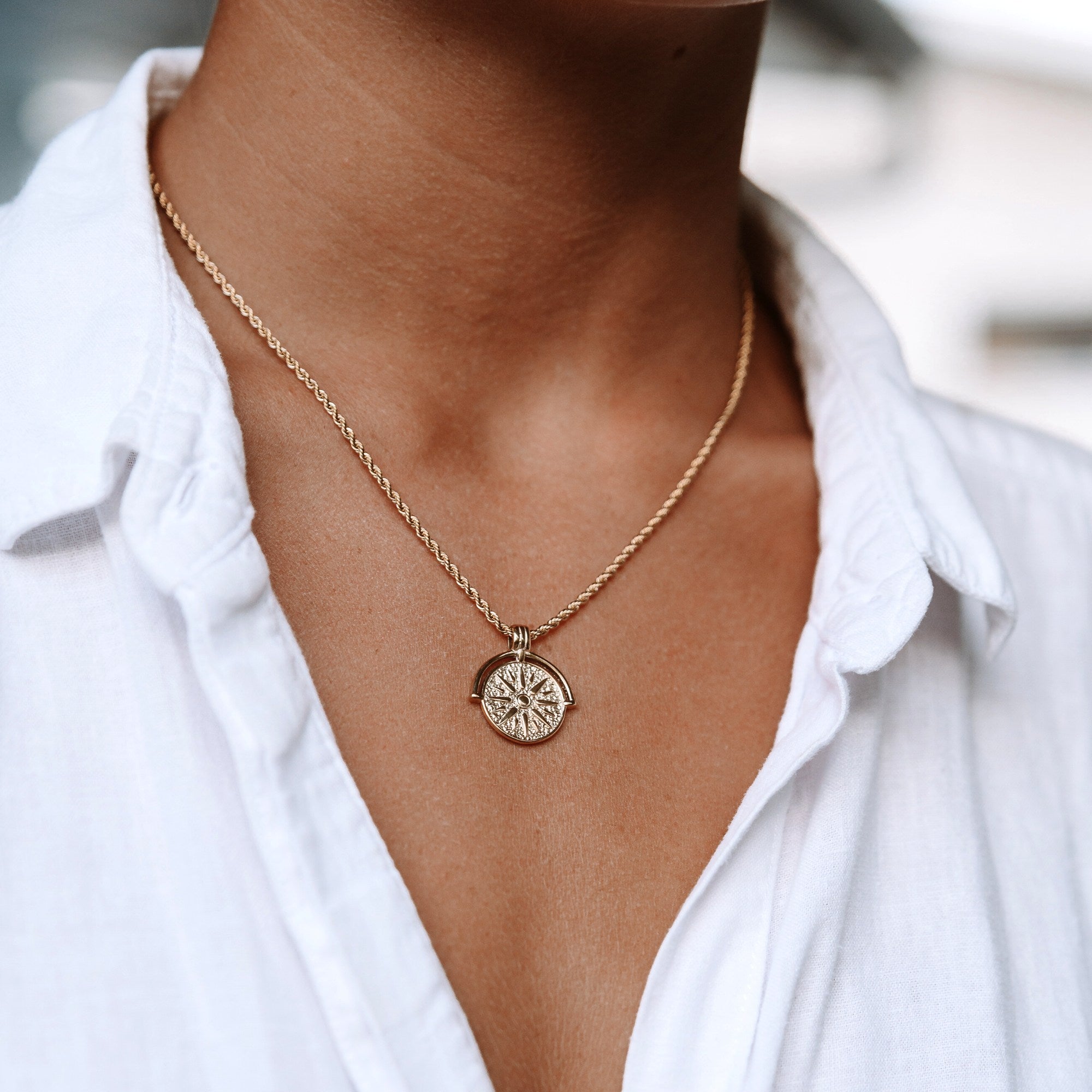





Leave a comment
This site is protected by hCaptcha and the hCaptcha Privacy Policy and Terms of Service apply.